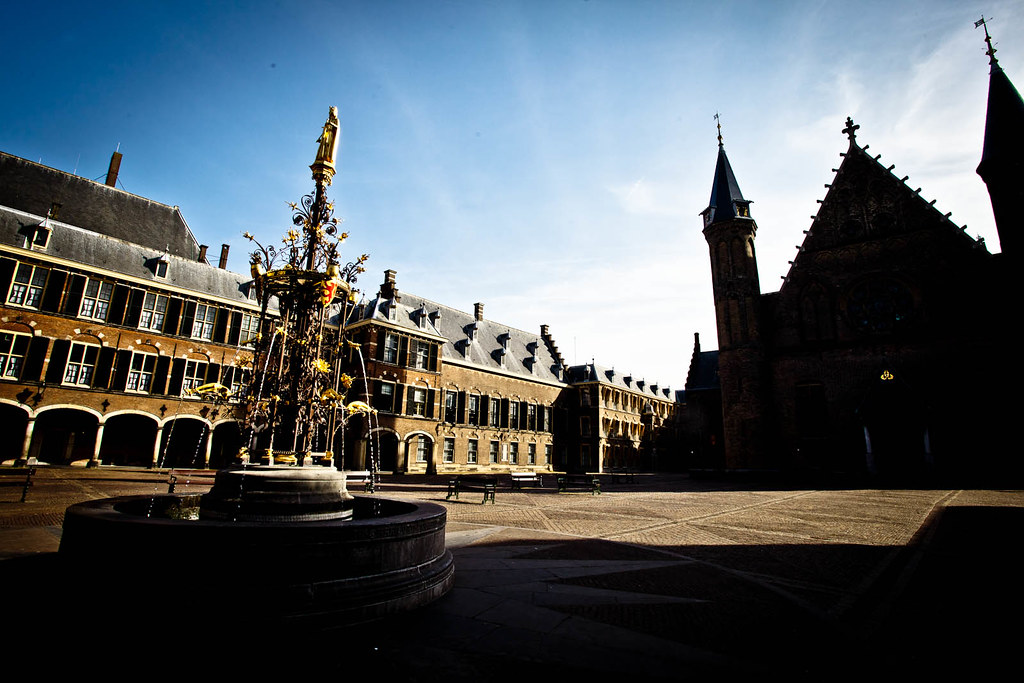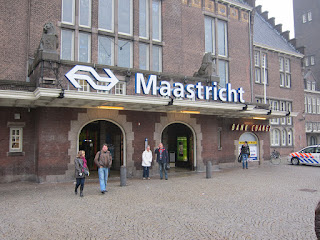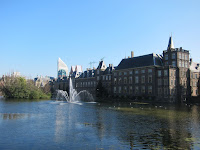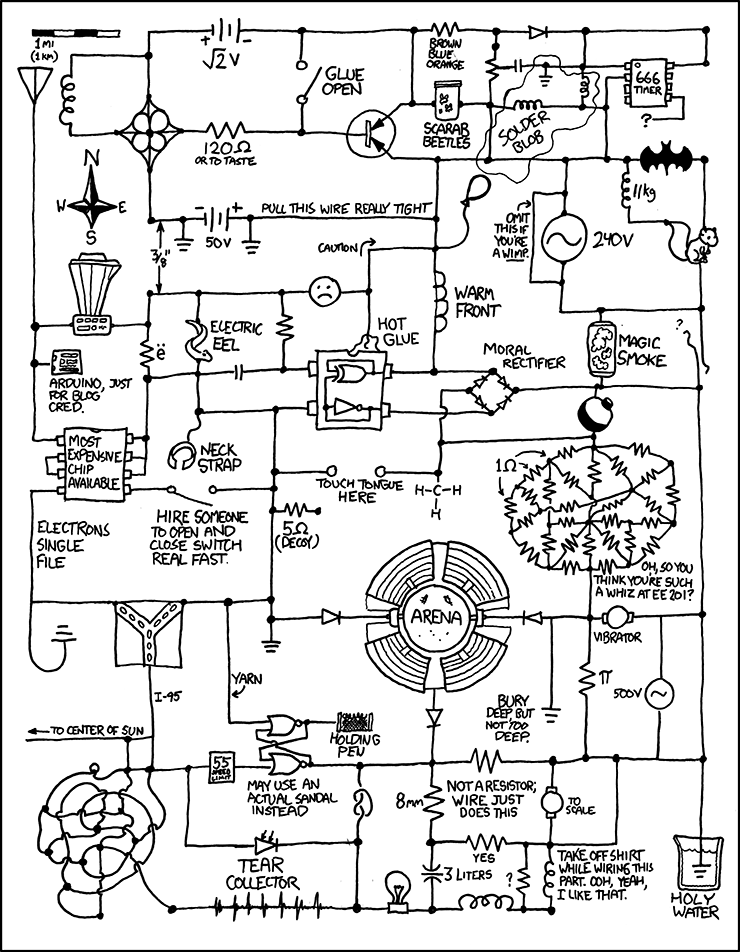The Hague, The Netherlands
If you had asked me one week ago: What is
Eurovision? I would have guessed that it is the name of a television network in France that produces a steady stream of the French equivalent of Telenovelas.
I would have been totally wrong. It is, in fact, a musical performance contest where 43 countries compete for 25 slots in a 3 hour performance broadcast live this past Saturday night from Dusseldorf, Germany. It has been going on for 56 years. All 43 participating countries get to vote for the winner out of that group of 25. (You might be asking: "43? Are there really that many countries in
Europe?" Well, yes, there are more than that, if you throw in Israel, Russia, Vatican city, and San Marino (just kidding about Vatican City, they did not participate this year).
In case you missed it, the song contest is an entertaining evening of music, costumes, dance, and light displays. The performers are closer to N'Sync and Ke$ha than anything else, but PG-rated. There were some very good acts and some oddities. We enjoyed Bosnia Herzegovina's kitschy cold-war-folk-rock-performance, Estonia's discordant pop-song, hard rocking Georgia, and a festive Spanish performance. In a rare Eurovision moment, Lena, the comely winner from Germany last year defended her title in an enjoyable performance. We were laughing at the French's opera singing heat throb and Greece's spoken word + off key Gregorian chant/opera + ionic columns in the background
(side note: honestly ionic columns! Greece should invest some of the bailout money on R&D in coming up with a new type of column). None of the bands we thought were going to do well, except for BH, placed high in the voting.
Eurovision is truly
unAmerican in the sense that it runs for 3 hours on public television, without commercials, and the voting of each country is revealed live at the end, country by country. It is truly
American in the sense that almost the entire show is in English, which makes it very easy to watch. Votes are 50% popular, 50% by a committee from each country. There must be a lot of criticism about the
voting because the hosts defended it a few times by saying "It's how we have always done it." Also,voting is like the U.S. Senate, that is to say strange, because Andorra and San Marino has the same voting strength Germany and France. Countries tended to vote for their neighbors and conspiracies abound. I went to bed as the votes of 43(!) countries were tallied.
 |
| Azerbaijan, The Eastern part of "Eastern Europe" |
In the morning of the following day, I learned that
Aizerbaijan took the title, in a surprise to rest of Europe. Bordering Iran and normally known for its "strong women's volleyball", "adept chess players", and above average "performances on Russian quiz shows", Azerbaijan's attractive duet had memorable white costumes. In fact, that's all I can remember of their performance. As the winner, Azerbaijan has the honor of hosting next year. Given the estimated cost of 30 million euros to put on such an event, Greece, Ireland, and some of the other countries were probably relieved that they did not win.
There is a lot of geopolitical analysis, naval-gazing, and tea leaf reading that goes into the contest. Just do a search on Google and you'll see headlines like "Ireland pins bailout hopes on Eurovision" or "The
Netherlands did not make the finals for the third year in a row, Parliament investigates", etc. All the self-examination is probably the most strange and least enjoyable bit of the extravaganza.
Bottom line, Eurovision probably does do more to help countries cooperate than foster, counter-productive, nationalistic sentiments. Like the Olympics, it probably does little net good or, at worst, little harm to have the contest for a region that has had countless wars over the past thousand years. I'll certainly be paying more attention next year to see how Azerbaijan puts on the show and looking forward to the zany costumes and back drops!































